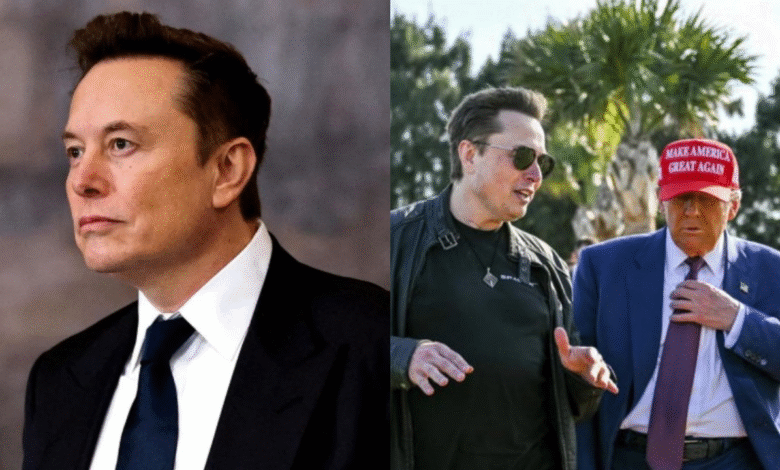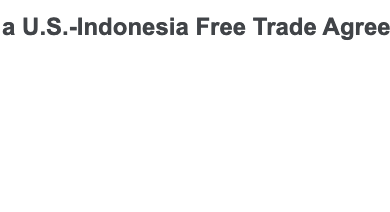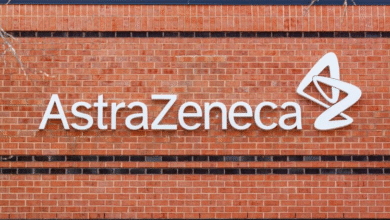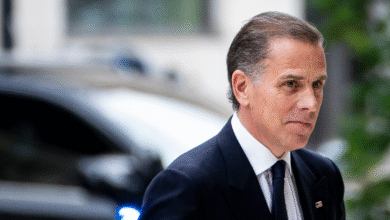Elon Musk Administration Policy: A Complex Stance

Elon Musk administration policy has become a focal point of discussions surrounding national governance, especially following the billionaire’s remarks during a CBS interview last Sunday. Known for his groundbreaking innovations, Musk expressed a complex relationship with Trump’s policies, revealing his reluctance to accept full accountability for the administration’s decisions. He voiced disappointment regarding the Trump GOP spending bill, which he believes undermines progress in government efficiency initiatives with the Department of Government Efficiency (DOGE). Furthermore, the DOGE cuts controversy has raised eyebrows about their impact on federal jobs and public perception of both Musk and Tesla. As public sentiment evolves, Musk’s role within government remains a topic of scrutiny, raising questions about the future of his influence and initiatives under the current administration.
The policies orchestrated under Elon Musk’s influence in the administration have sparked considerable debate and analysis, particularly in the context of his recent statements. During an engaging CBS exchange, Musk shared his hesitations about fully endorsing Trump’s directives while maintaining his support. The controversies surrounding Republican spending plans have left some questioning the efficacy and intentions of the Department of Government Efficiency, colloquially known as DOGE. Musk’s views reflect a broader sentiment about balancing government oversight and innovation, highlighting how his governmental role might shape public reaction. As the narrative around Musk’s political engagement evolves, so does the discourse about the implications for Tesla’s branding and the administration’s future trajectory.
Elon Musk’s Uncertainty Toward Administration Policies
Elon Musk has consistently demonstrated his support for former President Donald Trump, yet he expresses reservations about various policies implemented during the Trump administration. In a recent CBS interview, Musk stated, “I don’t want to take responsibility for everything the administration’s doing,” indicating a clear delineation between his personal beliefs and governmental decisions. This statement reflects the complexity of his position as both a supporter of Trump’s vision and a critic of specific policies like the GOP’s expansive tax and spending legislation.
Musk’s reference to the multitrillion-dollar spending bill illustrates his apprehension about the potential implications of such policies on his initiatives, including those at the Department of Government Efficiency (DOGE). He pointed out that the proposed legislation undermines the efforts that the DOGE team was pursuing, showcasing his commitment to grounded fiscal responsibility in government spending. This conflicting stance places Musk in a challenging position of balancing his public support for Trump’s agenda while remaining critical of policies that could jeopardize his ventures.
Implications of the GOP Spending Bill
The debate surrounding the GOP’s proposed spending bill has elicited considerable concern from various stakeholders, including Elon Musk. During his CBS interview, Musk expressed disappointment over the massive spending, emphasizing that it could add significant pressures to the U.S. national debt. This concern aligns with the broader discourse on fiscal responsibility and economic sustainability. Musk highlights that such spending strategies pressurize innovations aimed at transforming efficiency in government — objectives that were at the heart of DOGE’s inception.
Moreover, the GOP spending bill raises essential questions about accountability and resource allocation. As the Trump administration balances initiatives to stimulate economic growth, it faces criticism regarding the potential for overspending and mismanagement. Musk’s insights into these complexities reflect broader sentiments from entrepreneurs and industry leaders who are concerned that fiscal missteps may stall progress in key areas, ultimately undermining foundational projects like Tesla and others focused on sustainable development.
The Impact of DOGE Cuts on Musk’s Legacy
The Department of Government Efficiency (DOGE) was set up with high aspirations under the Trump administration, primarily aimed at reducing government redundancies and costs. However, the implementation of cuts has become contentious. Elon Musk, who held an overview role during this time, was faced with backlash when DOGE was perceived as a catalyst for significant job losses. Despite his efforts to defend the unit’s achievements, Musk acknowledges that DOGE became the focus of blame for governmental cuts, creating a complicated legacy amid his political involvement.
Musk’s nervousness about the public’s perception, shaped by DOGE’s controversies and its association with the Trump administration, highlights the personal risks leaders face when intertwining business and politics. As Musk’s government role becomes synonymous with these budgetary alterations, he must navigate the dual perceptions of being a business innovator while wrestling with political accountability. This juxtaposition is critical as it shapes both his public image and the consumer outlook on Tesla amidst ongoing societal scrutiny.
Musk’s Critique of the DOGE Administration’s Role
Musk’s tenure at the helm of DOGE was brief yet significant, characterized by a duality of innovation and controversy. He pointed out that DOGE took on the role of a ‘whipping boy’ for the administration, where any negative headlines or fallout from budget cuts were unfairly linked to them. Through this lens, Musk criticizes not only the portrayal of DOGE but also the underlying systemic challenges that often see agencies become scapegoats for broader political failings.
This dynamic raises questions about the operational independence of organizations established to foster efficiency versus the political agendas they may unintentionally serve. In his CBS discussions, Musk portrays himself as torn between loyalty and integrity, aiming to champion efficient governance while grappling with the fallout of dogs’ operational failures. The ongoing critique reinforces the perception that achieving transformative change in government frameworks is fraught with external pressures and public skepticism.
How Musk’s Policies Influence Tesla’s Perception
The intersection of Elon Musk’s policy-driven decisions and his corporate identity raises significant concerns regarding public perception of Tesla. Following his time in government, the mixed reviews of his political engagements may have tainted consumer sentiment towards his brand. Reports have emerged depicting Tesla showrooms as targets of vandalism, a direct reflection of the backlash Musk experiences from his contentious association with government cuts and controversy surrounding DOGE’s operations.
Public perception has a direct correlation to consumer behavior. For a brand like Tesla, relying heavily on consumer goodwill, Musk’s involvement in politics raises concerns about credibility and alignment with consumer values. Thus, the apparent disconnect between Musk’s ambitions in government and Tesla’s operational reputation becomes a critical narrative that impacts market perception and consumer trust. How Musk navigates this tumultuous landscape will ultimately shape not only his legacy but also the future trajectory of Tesla in a competitive market.
Navigating the Political Landscape: Musk’s Challenges
Elon Musk’s navigation through the political landscape presents a series of challenges, especially as public figures often face scrutiny for their affiliations. While he endeavors to maintain his support for the Trump administration, Musk simultaneously grapples with the consequences of policies he’s linked to, including those emanating from DOGE. His statements on CBS underscore a desire to distance himself from the consequences of government decisions while still supporting overarching goals, a tightrope that becomes increasingly difficult amid political polarization.
The challenges Musk faces are emblematic of a larger issue many business leaders encounter when they step into political roles. Mixed allegiances can lead to a quandary where the desire for innovation clashes with governmental inertia and public disharmony. As Trump aides and lawmakers push forward with DOGE’s mission, Musk’s critiques signal a pivotal moment for him to redefine his contributions and find ways to align them with public sentiment, ultimately affecting how he and Tesla are perceived moving forward.
Evaluating Musk’s Future in Government and Business
Looking ahead, the future of Elon Musk in both government and business is uncertain as he assesses the impact of his stint at DOGE and his alignment with Trump. The complexities of navigating political waters while maintaining a focus on business innovation present a formidable challenge. Musk’s public statements indicate a willingness to engage but simultaneously suggest a need for distance from policy failures that could tarnish Tesla’s reputation.
Musk’s journey is crucial for entrepreneurs who aspire to influence change beyond traditional business markets. As his political experiences unfold, they will shape how he strategizes the future of his ventures and steers Tesla towards remaining both innovative and socially responsible. Being at the helm of groundbreaking technologies while managing public scrutiny illustrates the delicate balance between leadership and accountability.
The Intersection of Innovation and Government Efficiency
The role of innovation in structuring effective government practices is central to how Musk envisions improvement within public sectors. The ideals underlying DOGE centered on the notion that innovative approaches could yield significant reductions in wasteful expenditures. By embracing these efficiencies, Musk aimed to not only rationalize government operations but also illuminate the path for technology to positively influence legislative effectiveness.
However, translating innovative concepts into practical strategies within a political framework often encounters significant resistance. Musk’s insight into governmental inefficiencies reveals the obstacles entrepreneurs face when introducing avant-garde ideas into established bureaucratic systems. It is here that the intersection of government and business reveals both opportunities and challenges, necessitating a delicate approach as stakeholders desire progress while accommodating the political landscape.
Critique of Partisan Politics in Economic Agenda
Musk’s critiques of partisan politics, particularly concerning the economic agenda, resonate with wider calls for bipartisan cooperation in addressing fiscal policy. His disapproval of the GOP’s spending package underscores the frustrations felt by many in the business community regarding the politicization of economic decisions. Musk’s insights reflect a growing sentiment that immediate political gains often overshadow long-term economic stability, thus undermining the potential for collaborative progress.
This critique serves a dual purpose: it not only illustrates Musk’s commitment to fiscal responsibility but also highlights the necessity for political entities to transcend partisanship in their policymaking processes. As he articulates these views through various platforms, including his engaging CBS interviews, Musk positions himself as a voice for notably those in tech who want governmental fiscal practices that align with innovative and sustainable growth strategies.
Frequently Asked Questions
What is Elon Musk’s stance on the current administration’s policies during his CBS interview?
In his recent CBS interview, Elon Musk stated that while he supports President Trump, he does not endorse all of the administration’s policies. He expressed concern about certain decisions, particularly the GOP’s multitrillion-dollar spending bill, indicating it undermines the efforts of the DOGE initiative he was involved with.
How does Elon Musk feel about the GOP spending bill discussed in relation to DOGE?
Elon Musk voiced disappointment regarding the GOP’s multitrillion-dollar spending bill during his CBS interview, stating that it undermines the work being done by the DOGE team, which aimed for government efficiency.
What role did Elon Musk have in government and how has it influenced public perception of Tesla?
Elon Musk served as the head of the Department of Government Efficiency (DOGE) during President Trump’s administration. His brief tenure in government has negatively impacted public perception of Tesla, resulting in increased scrutiny and incidents of vandalism directed at Tesla properties.
Why did Elon Musk describe DOGE as a ‘whipping boy’ in his CBS interview?
During the CBS interview, Elon Musk referred to DOGE as a ‘whipping boy’ because any cuts or controversies related to the administration were often blamed on DOGE, detracting from its intended goals of improving government efficiency.
What was Musk’s message regarding his responsibility for the administration’s actions?
Musk clarified in his CBS interview that he does not wish to take responsibility for everything the administration is doing, indicating his desire to support the administration while also maintaining his independence.
What are the implications of the DOGE cuts discussed by Trump officials?
Trump officials, including Russell Vought, have stated their intention to advance the DOGE cuts despite congressional pushback. They believe these cuts are vital for reducing government spending, contradicting some lawmakers who claim DOGE has overextended its reorganization efforts.
How does Elon Musk’s backing of Trump impact his business, particularly Tesla?
Musk’s strong support for Trump and his time in the DOGE have negatively impacted Tesla’s public image, leading to instances of vandalism and arson against Tesla properties as well as a decline in consumer perception.
| Key Point | Description |
|---|---|
| Musk’s Support for Trump | Musk has been a supporter of Trump but does not endorse all administration policies. |
| Avoiding Responsibility | Musk expresses reluctance to take full responsibility for the administration’s actions during his interview. |
| Disappointment with Spending Bill | Musk criticized the GOP’s large spending package, seeing it as detrimental to the work of the DOGE. |
| DOGE’s Impact | The Department of Government Efficiency (DOGE) faced backlash for federal job cuts attributed to its initiatives. |
| Musk’s Mixed Reception | His political involvement has affected public perception of Tesla negatively. |
Summary
The Elon Musk administration policy reflects a complex interplay between support for President Trump and the challenges faced during his tenure. While Musk has publicly voiced his support for Trump, he finds himself distancing from certain policies, particularly those involving significant financial implications like the GOP’s spending bill. His leadership of the Department of Government Efficiency (DOGE) was marked by controversy and substantial job cuts, which have left him in a precarious position regarding public perception of his company, Tesla. Ultimately, Musk’s statements indicate a struggle to balance his allegiance with a need to maintain a distinct identity amidst the administration’s broader policies.




